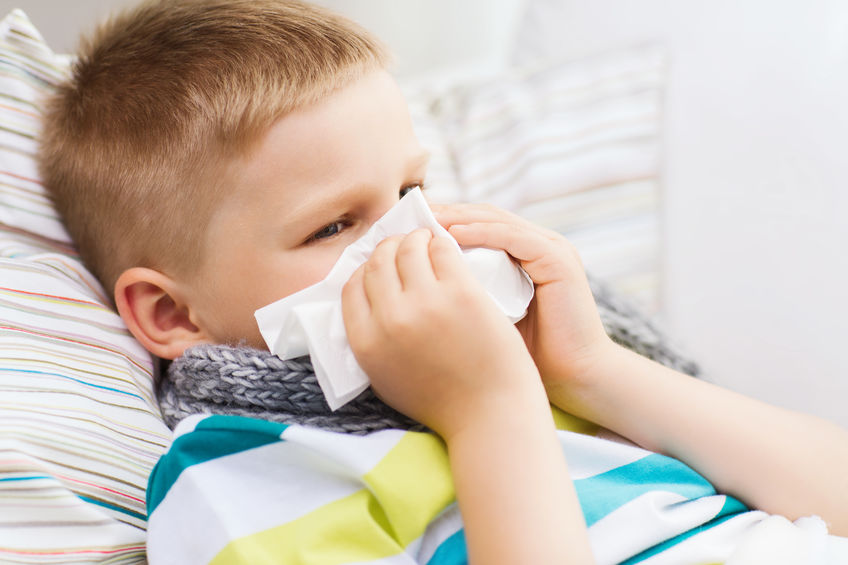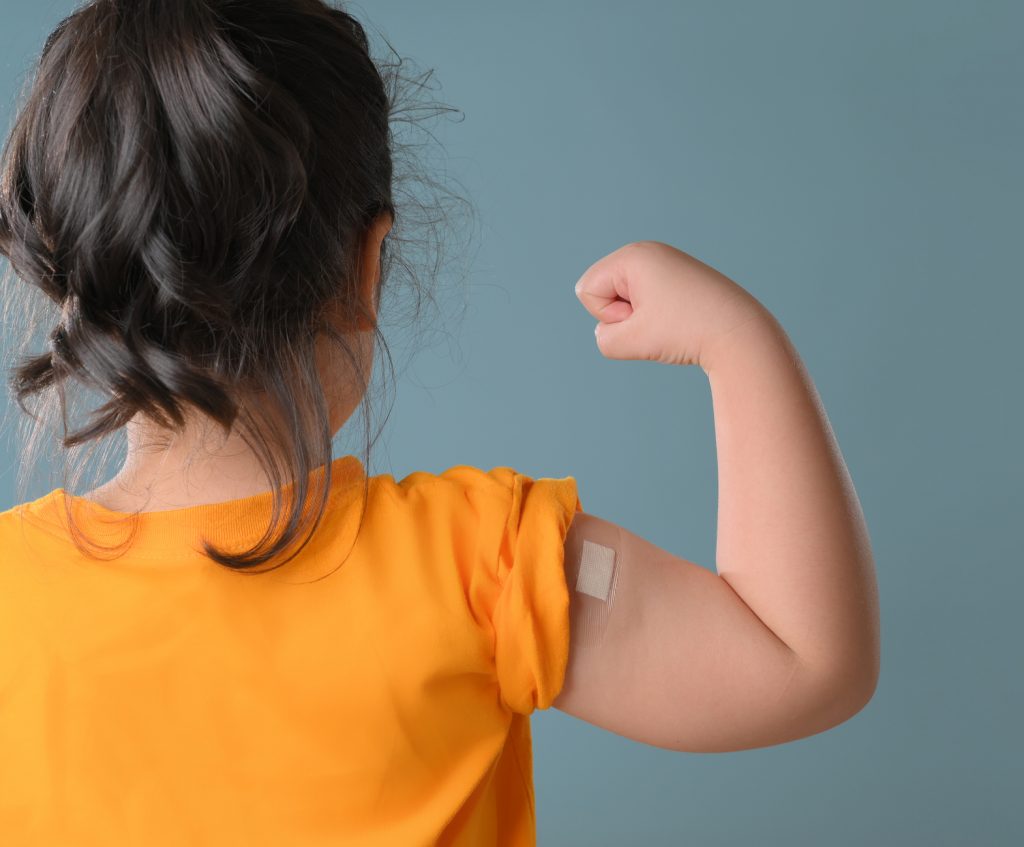By Jeremy Toffle, M.D.
This content was originally shared on Dr. Toffle’s personal blog site, ImperfectDadMD.com. Click here to view the original post.
I am sure many of you have heard that the Pfizer mRNA vaccine for COVID has been approved for the ages of 12 through 15. This approval is an extension based on the already approved EUA for the vaccine for those 16 years of age or older. Below I discuss what was talked about at this meeting so you can be better prepared to make the decision that you feel is right for your child and family.
I have talked about many topics in my previous posts on the mRNA vaccines and how the body reacts to these vaccines. Below is simply DATA that I pulled from the talk and put into easier to read tables and bullet points.
But First, Why Vaccinate Kids?
You may have heard this question asked many times. Why kids? Don’t they just bounce back from COVID infections? Aren’t they immune to the many complications we see in adults?
These statements simply are not true, yet sadly I still see many in the medical community (not pediatrics) saying this. That is due to the lack of exposure to these patients, thus affecting their overall view of the burden of illness on our pediatric population.
Quick Data on Kids and COVID
- As of 5/6/21 – 3,854,791 pediatric cases were reported in kids (or about 5,122 cases per 100,000 population)
- 1 year ago pediatric cases of COVID made up 3% of total COVID cases, whereas now they make up over 22% of these cases.
- Of 24 states and NYC reporting, 1.2-3.3% of ALL pediatric hospitalizations were due to COVID
- Around 0.9-1.9% of COVID cases in pediatric patients results in hospitalization
- In one data set looking at deaths from COVID in the US, out of all of the 557,486 deaths, 277 of those were in kids 0-17 years of age. However, these are the cases counted up to a certain point and do not include the cases that have occurred during and since that data collection
- Data collected up until May 3, 2021 have shown 3742 cases of MIS-C causing 35 deaths
- Adolescents with moderate-to-severe COVID infections can develop post-infectious cardiac changes that can lead to ease of fatigue, poor exercise tolerance, and increased risk of death with strenuous exercise
Safety, Immunogenicity, and Efficacy of the Pfizer Vaccine in the 12-15 Year Age Range
This is probably the most important aspect of the discussion on the vaccine, and should be where you spend most of your attention when making decisions for your kids.
- Safety – Is this vaccine safe for my child, and how do side effects compare to those in the older age groups.
- Immunogenicity – How well does the immune system respond to the vaccine, and should I expect my kids to have a similar immune response to those older than them?
- Efficacy – How well did the vaccine do at preventing symptomatic COVID infections?
SAFETY
Below are several tables constructed of the various side effects experienced by this age range and how it compares to those aged 16-25 years old in the previous trials. This comparison aids in seeing how the slightly younger participants faired when compared to those slightly older.
Before we get into the tables, please remember that SIDE EFFECTS are the body’s IMMUNE RESPONSES to the ANTIGEN in the vaccine. Fevers, localized pain, chills, etc, can all be due to inflammation from the body during its own immune response to the vaccine.
- Localized symptoms = symptoms at the injection site
- Systemic Symptoms = anything affecting the rest of the body like fever, chills, headache, etc.
Table 1. Localized Reactions Experienced Within 7 days of Either Dose 1 or Dose 2
| Symptom | 12-15 years, dose 1 | 16-25 years, dose 1 | 12-15 years, dose 2 | 16-25 years, dose 2 |
| Redness | 5.8% | 6.4% | 5% | 5.7% |
| Swelling | 6.9% | 8.3% | 4.9% | 6.8% |
| Pain at injection site | 86.2% | 83.4% | 78.9% | 77.5% |
Table 2. Systemic Symptoms Reported Within 7 days After Each Dose in Each Age Group
| Symptom | 12-15 years old, Dose 1 | 16-25 years old, Dose 1 | 12-15 years old, Dose 2 | 16-25 years old, Dose 2 |
| Fever | 10.1% | 7.3% | 19.6% | 17.2% |
| Fatigue | 60.1% | 59.9% | 66.2% | 65.6% |
| Headache | 55.3% | 53.9% | 64.5% | 60.9% |
| Chills | 27.6% | 25% | 41.5% | 40% |
| Vomiting | 2.8% | 1.7% | 2.6% | 2.7% |
| Diarrhea | 8% | 10.7% | 5.9% | 8% |
| Muscle Pain | 24.1% | 26.9% | 32.4% | 40.8% |
| Joint Pain | 9.7% | 13.2% | 15.8% | 21.9% |
Table 3. Adverse Events >1% by System Organ Class from One Month Post Dose 2 for Both Age Groups
| Organ Class | 12-15 year olds | 16-25 year olds |
| Any Event | 6% | 10.8% |
| General Disorders and site condition | 1.4% | 3.9% |
| Gastrointestinal | 1.2% | 0.9% |
| Nervous System | 1.1% | 2.4% |
| Musculoskeletal and Connective Tissue | None reported | 2.2% |
| Infections and Infestations | None reported | 0.9% |
| Injury, Poisoning, and Procedural | None reported | 0.6% |
So what does ALL of this information above tell us? It tells us that the 12-15 year old age group had very similar Adverse Events when compared to the slightly older 16-25 year old group within 7 days of both dose 1 and dose 2 of the vaccine. The 3rd table shows that this age groups had actually less symptoms within 1 month after the 2nd vaccine as well. The numbers for these did go up slightly as the study continued through mid March 2020, but still less than the percentage of the 16-25 year old age group.
For your information, table 3 discusses events by organ system. This is what that means:
- General Disorders and Site Condition: localized reaction at injection site as well as typical systemic conditions like fevers, chills, body aches
- Gastrointestinal: nausea and diarrhea
- Nervous System: mainly complaints of headaches
- Musculoskeletal and Connective Tissue: muscle aches and joint aches
- The other categories reflect situations that occurred during this time period but most likely not related to the vaccine administration
As for serious events occurring during the study, there were a total of 5 in the vaccine group and 2 in the placebo group:
- Vaccine group: 1 with abdominal pain due to constipation, 1 with neuralgia, 3 with depression (1 with suicidal thoughts), and 1 with anxiety – sadly this last part has seen a rise this last year in the younger teen population. They did review this to confirm that the use of SSRIs and receiving the vaccine did not increase the risk of worsening depression/anxiety, and no correlation was found.
- Placebo group: 2 with appendicitis
- There were NO DEATHS due to the vaccine, autoimmune conditions, MIS-C, Bells Palsy, or other findings during the study nor reported afterwards up to this point.
Lymphadenopathy: you may have heard about this with adults and the COVID vaccines. In kids, 9 cases occurred in the vaccine group and 2 in the placebo group. It more commonly occurred on the left axillary (arm pit) region or left cervical (neck) region. It occurred between 2-10 days post vaccination and resolved within another 10 days.
Immunogenicity and Efficacy
How well does it work in the body? What is the antibody response like?
In the study looking at the antibody response, the 12-15 year old group had a NT50 value (I won’t get into specifics here on this) of 1239.5 when compared to 705.1 of the 16-25 year old group. This was 1 month after the 2nd dose. This is a great antibody response, and apparently better than their older counterparts.
As for Efficacy, no participants in the vaccine group contracted symptomatic COVID, whereas 16 in the placebo group did (2 more contracted COVID prior to the 7 day mark post dose 2). This is 100% efficacy – in other words none of the vaccine group got symptomatic COVID. Will this translate into true effectiveness in the real world? Probably not, but it is still very convincing.
Final Thoughts
Based on the clinical data available it appears that the 12-15 year old age group has similar and sometimes less adverse effects (immunogenicity responses) to the vaccine when compared to the 16-25 year old group. We also see a stronger immune response and convincing efficacy as well.
Ultimately vaccines are meant to help protect us not only from death, but from the morbidity of illness. We do see kids as long haulers of symptoms. I personally have had patients who used to play sports and no longer can due to chronic lung symptoms post COVID. We see adolescents with heart changes secondary to COVID that can also no longer participate in sports either. Kids do die from COVID.
We don’t always hear about the complications of COVID in kids, but they do happen. You as the parent have to decide what your choice is when it comes to vaccinating your child against this virus. Look at the data. Look at the risks versus benefits. Make a decision.
Stay Healthy
Stay Safe
Embrace the imperfection
Imperfect Dad MD



